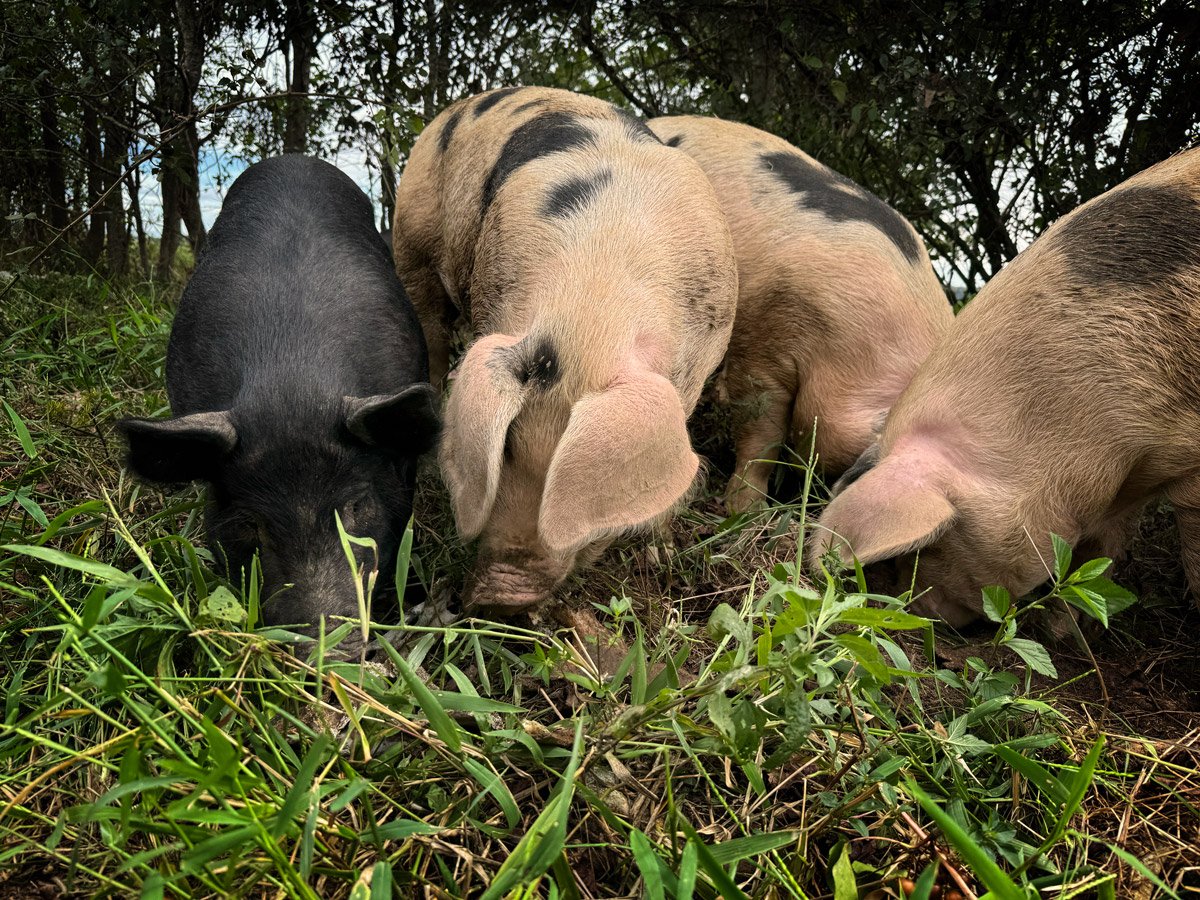
Food is personal.
Knowing who raised it should be normal.
The relationship between people, animals, and food should be personal, not mechanical. Johnny & Kirstin are working to recover the lost humanity of our food and land. It culminates with a feast.
Once young and starry-eyed, Kirstin and Johnny met, married, and traveled the world together before settling down to work and raise a family. Having hunted or raised nearly all of the meat they’ve eaten throughout their marriage, paired with a love of animal husbandry, they decided it was time to take their five children and move to the country and start a farm.
Kirstin grew up outside of Loveland, Colorado. Her family dabbled in all the animals, and she showed pigs and chickens for 4-H. Her family always had a half acre garden, and a deep love for the fresh, flavorful produce and meat raised on their small homestead was instilled in her from a young age. She enjoyed a country-life upbringing and spent most of her childhood outside. It was a gift that formed her, and she hoped to give her own children a similar experience one day.
Between childhood and finding a farm of her own, Kirstin became a licensed cosmetologist, earned her B.S. in business from Colorado State University, married the man of her dreams, and had many of her children at home.
Kirstin loves to cook for family and friends. Whether a simple supper, a formal five course dinner, or a bang-up, barn-rattling shindig, she is a woman who takes feasting seriously. You don’t want to miss out on the good things that come out of her kitchen. Kirstin is also a butcher, and can break down into meal-sized portions almost any animal Johnny has ever brought home.
Johnny’s family settled in eastern Arkansas in the 1850s, just outside Holly Grove. The original farm his great, great, great grandfather purchased on the Sand Road is still in his family, 7 generations later. Not too terribly far from this farm, Johnny was born on the side of an Delta highway in the back of a 1965 Ford Fairlane station wagon (to the undeniable credit of his indomitable mother and his Eagle Scout father). Early on that frosty morning, Johnny’s course was charted: he would be a travelin’ man, but wouldn’t feel quite at home anywhere but deep in the heart of the Delta.
He grew up roaming woods, sloughs and ponds, hunting, studying animals, and helping out on the farm. With a bright future, his father strictly admonished him to not go into farming due to the farmer’s reliance on bank debt and the unpredictable, often devastating weather. These were real hazards his father had seen farmers face year after year, and they didn’t seem to be getting any better. Johnny’s parents encouraged him to go to college and make something of his life. But the seeds of agriculture had already been planted and watered. Earning a degree in communications, Johnny’s next door neighbor, also the town mayor and his grandmother’s farmer, kindly pointed out that he should instead “come home and learn how to communicate with the crops.” Johnny didn’t understand it at the time, but it was an honest invitation into a world of beauty and struggle that only a farm knows. Johnny laughed and went back to college. Johnny was 18 at the time. He would spend the next 18 years trying to get back to the farm.
Johnny stumbled his way into becoming an ecological landscape designer, working in the semi-arid steppe climate of the Wild West (Colorado). The arid climate led Johnny to study soil, which led him to study ecology, which led him to study regenerative agriculture, which led Kirstin and him back to Arkansas and to purchasing their own farm. Johnny’s hope is that his descendants will one day farm the land his great, great, great, grandfather farmed. His project is to find the path for people, animals, and local food to thrive on farms in the Arkansas Delta, and flow into the rest of the land. Why should some of the richest soils in the world grow only crops sent to feed animals in feedlots and confinement feed operations hundreds of miles away?
Johnny hopes to see the rich, black, Delta soil grow food that will work to renew and create culture in the Delta and beyond.
Vita pro terra, abundantia pro convivium!
(Life for the land, abundance for the feast!)


